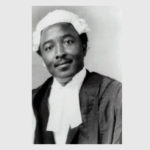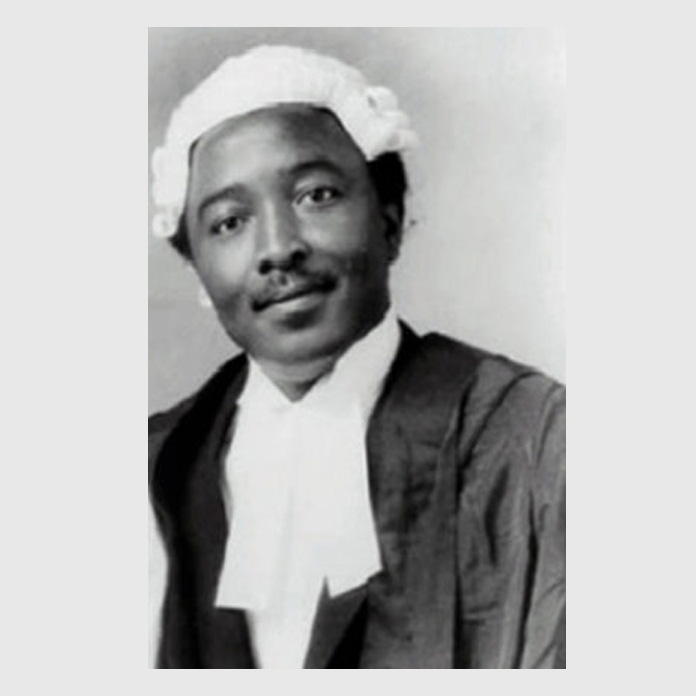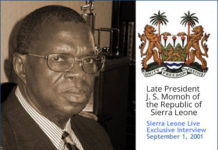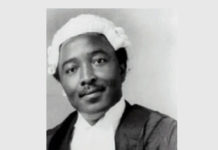

Was Francis M. Minah Guilty of Treason? Part 2
First published July 30, 2001 – Sierra Leone Live
By John L. Musa (Rest In Peace)
In this four-part article, John L. Musa shows whether or not Francis M. Minah was guilty of treason for the May 23, 1989 coup.
Part 2 – The Charges Against Francis Minah – Reasonable Or Political?
THE CHARGES AND CONSEQUENCES
The syntax in the description of the particulars of the charges against Minah cast a pall on his innocence because they were not in consonance with the Criminal Procedure Act of 1965. They were vague, over-broad and should have been rejected for failure to adhere to the Criminal Procedure Act. All the courts of the Superior Court of Judicature in Sierra Leone agreed with the Prosecutors that Minah was guilty as charged. But was he? Many criminal suspects are wrongly charged and invariably found guilty because their lawyers were incompetent. Or the jury returned the wrong verdict because they did not understand the facts they were called to resolve. Or the trial judge adjudicating in the tension of politics and the rule of law, erred at the detriment of the accused. Or the crime charged is political to the extend that the jury or the judge can only reach a guilty verdict to please their patrons in power. It is my contention that Minah was wrongly charged and the Trial Court, the Court of Appeal and the Supreme Court erred or deliberately conjoined in the alleged conspiracy to juridically murder an innocent man. Courts invariably err and judges act politically especially in treason trials where the evidence is often times picayune. Four men freed by the Court of Appeal in the Minah treason trials proves the point that a jury in a lower court may convict you, but upon a closer examination of the evidence, a high court could free you.
Let us look more closely to the Particulars of Francis Mischeck Minah’s alleged crimes in view of the general rules of criminal procedure. In the First Schedule at Section 50, Rule # 8 of the Criminal Procedure Act of Sierra Leone, the following is the requirement in describing a crime in an indictment. Rule 8 demands that the prosecutor describe the particulars of the crime charged as follows: “Subject to any other provisions of this rule, it shall be sufficient to describe any place, thing, matter, act or omission whatsoever to which it is necessary in ordinary language in such a manner as to indicate with REASONABLE CLEARNESS the place, time, thing, act or omission referred to.” (Upper case emphasis supplied).
Along the same lines, Rule 7 of the Federal Rules of Criminal Procedure in the United States demands that prosecutors describe the nature and contents of an indictment or information as follows: “The indictment or information shall be a plain, concise and definite written statement of the essential facts constituting the offense charged.”
Let us hasten to the most curious part under our consideration – the vague and over-broad charges preferred against Mr. Minah. I must say in passing that in inveighing against the professional conduct of Dr. Conteh, a man otherwise distinguished at learning in Cambridge University and as a Practitioner of law, I do not mean to disparage all his professional mien in the manner which is the sport of his gadflies who attack him with emulous violence. I mean to make the point which I trust POLITICIAN CONTEH well knew but PROSECUTOR CONTEH ignored. The prudence of a good lawyer was on display in his opening argument, yet, there was folly and pusillanimity of the politician bristling at a seeming opponent in the Dock in Court Room No. 1. Trial lawyers are invariably well-advised, in preparing charges against criminal suspects, to spend more time assessing the merits of the suspects’ involvement in criminal conduct against the standard of proof and the well-springs of the elements of the crime to be charged. Careless preferment of charges is often fraught with intolerable consequences. And in Treason cases, the alarm of political bias becomes one of those consequences, hence Minah’s supporters’ accusations of political vendetta. In pursuit of the rule of law and democratic principles and practice, it is impossible to suppress a feeling of sympathy for even a peccant politician like the fallen Minah. The tenor of the indictments against Minah described below are truly not reasonable as required by Rule 8 of the Criminal Procedure Act of Sierra Leone or Rule 7 of the Federal Rules of Criminal Procedure in the United States.
“Francis Mischeck Minah on a date UNKNOWN between July 1, 1986 and March 23, 1987 in Freetown, incited Jamil Sahid Mohamed and Gabriel Tennyson Kaikai and others UNKNOWN to overthrow the Government of Sierra Leone by unlawful means” (my emphasis).
“On a date UNKNOWN between July 1, 1986 and March 23, 1987, Francis Mischeck Minah incited Harouna Vandy-Jimmy to solicit and collect contributions in furtherance of the plot to overthrow the Government of Sierra Leone by unlawful means” (emphasis supplied).
If the date on which Minah allegedly incited his co-conspirators is UNKNOWN, how could the prosecutors ascertain when the crime was committed. The criminal suspect could have a waterproof alibi as Minah may have had. As in most treason trials, the big fish in the dragnet is brought to court kicking and screaming his innocence. It is clear from the requirement of the rules of criminal procedure that Prosecutor Conteh charged Minah on slenderest circumstantial evidence. The burden of proof lay with Prosecutor Conteh to show beyond the reasonable doubt that Prisoner Minah was guilty. As Fleming James has shown in his classic work on the hoax and lore of the “shifting of burden of proof,” between the Parties at Bar, Prosecutor Conteh possessed the burden and he failed to show that Mr. Minah was guilty. Serious doubt attached to the Attorney General’s evidence. The lack of evidence and verisimilitude treason were on the side of the prisoner. The prosecution and execution Mr. Minah will remain an enigma until, a posthumous exoneration is exacted from Government. In personally leading the charge against Mr. Minah, Politician Conteh clashed with Prosecutor Conteh. Politician Conteh is wise but Prosecutor Conteh was imprudent at the Treason trial. It seemed that Prosecutor Conteh snatched the reed of retribution out of the hands of Minah’s political enemies, and repeatedly smote Minah with their relish. Prosecutor Conteh opened the trial by pressing the issue of a traitor (perhaps treachery to the APC). He compared Mr. Minah to Lucifer, the Angel who rebelled against God and was jettisoned to Hell. To Prosecutor Conteh, Prisoner Minah had committed “Lucifer’s Sin”. The clever Political Conteh knew or should have had reason to know that there was no PROBABLE CAUSE to charge Mr. Minah with treason because there was no credible evidence at his trial. He also should have known or have reason to know that his allegations were party-spirited. Yet, he betook himself to demagoguery and harangued Prisoner Minah. Playing to the APC gallery, he accused Mr. Minah of letting Kaikai take his “political chestnuts out of the fire.” The brilliance of metaphor was evident in the Opening Argument and so was the personal and political bias.
Prosecutor Conteh looked the caricature of Judge Jeffreys, when he described Minah’s alleged plot to overthrow Government. Judge Jeffreys was the notorious judge who in 1685 presided over the treason trials on the Western Circuit in England. He was sent to Monmouth after the Battle of Sedgemoor to try and punish treason suspects. It is there that he acquired the sobriquet, “hanging judge” for his indifference to criminal procedure and conducted swift trials and mete capital punishment for those he condemned. In many instances as in Minah’s case, the treason suspects were innocent. Just as Judge Jeffreys vociferated his accusations against innocent men and women, so Prosecutor Conteh harangued Minah for merely being a former associate of the key suspects without other proof connecting him to treason. The question before us then is: Having wrongly charged Minah, did Prosecutor Conteh prove his case for treason? Let us look at the best attempt at direct examination by Prosecutor Conteh.
Here is Part 1 of the series
Here is Part 2 of the series
Some facts about Francis M. Mina from Wikipedia



